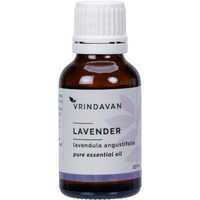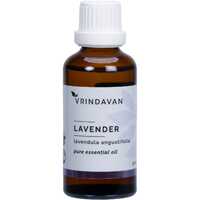Ah...the scent of freshly peeled oranges and lemons...the aroma of warm cinnamon rolls. Unfortunately, too often we're sensing these smells not from our kitchens but through synthetic fragrances. Noticing headaches after burning candles, using particular cleaners, or wearing a particular lotion? You may be incurring side-effects from artificial scents.
While a product may claim using an "all-natural" fragrance, unless the label specifies an essential oil you'll most-likely find the broad terms "fragrance" or "parfum" Neither of those ingredients are synonymous with essential oil, instead, they're a laboratory concoction of countless chemicals. While companies can choose from tens of thousands of chemicals to create their unique aroma, they aren't required to disclose which chemicals they used to create their proprietary blend. As a consumer, distinguishing which specific chemical your body has an aversion to is then nearly impossible.
Essential oils, on the other hand, are derived from the leaves, petals, bark, peels or stems of plants, herbs, and flowers through a cold-press or steam distillation. Both processes are time-consuming and require a significant amount of resource to produce a small amount of essential oil. Certainly, synthetic forms are much less expensive for corporations to add to their product.
Though a laboratory may be able to closely replicate a natural scent, smelling them doesn't have nearly the same effect on our bodies. Essential oils have a direct effect on our body's limbic system (the portion of our brain dedicated to emotion, memory, and hormones). When essential oils are inhaled, thereby stimulating this system, several responses can occur: decrease in anxiety, increase in mental clarity, improved quality of sleep, reduce stress, increase energy, and improve memory.
Additionally, many essential oils are naturally antibacterial (clove, peppermint, rosemary) and anti-inflammatory (lavender, bergamot, eucalyptus) so they can also help increase circulation and alleviate congestion and pain.
Synthetic fragrances, however, have vastly different effects on the body. Studies have linked fragrance/parfum to skin irritation, headaches, nausea, fatigue, allergies, respiratory concerns, nervous system disorders, asthma, learning disabilities, ADD, and even reproductive disorders. Frankly, these side-effects stink.
We aren't exposed to synthetic fragrances only at the perfume counter, however, they're lingering virtually everywhere: detergent, skin care, cleaning products, air fresheners, candles, feminine hygiene products, even items labeled "unscented." How, then, do you avoid them? Limit your risk by reading labels. Ensure 'fragrance' or 'parfum' are not listed among the ingredients. Choose skin care that is truly unscented then add your own organic essential oil. Instead of chemical-laden air fresheners, add pure essential oils to a diffuser. When choosing candles, look for ones using pure essential oils or beeswax which naturally detoxes surrounding air.
While you may save a few dollars purchasing products that utilize synthetic fragrances, affects from the associated health risks may end up costing more in long-term health care. Mindfully choose to purchase home and skin care safer for you and your family. Read labels, select products with essential oils, breathe deeply and enjoy the physiological benefits from authentic aromas.
...and remember, qualified nutritionists at Healthy Being are available to offer further general advice to help guide you in selecting the right products. So please, feel free to contact us at anytime!
 Stefanie Rock is a Nationally Board Certified Massage Therapist and a regular contributor to HB Insights. A green living educator, she frequently facilitates presentations and has written hundreds of articles on creating a healthier lifestyle for yourself and the environment.
Stefanie Rock is a Nationally Board Certified Massage Therapist and a regular contributor to HB Insights. A green living educator, she frequently facilitates presentations and has written hundreds of articles on creating a healthier lifestyle for yourself and the environment.


 Certified Organic
Certified Organic Vegan Friendly
Vegan Friendly  Vegetarian
Vegetarian Organic Ingredients
Organic Ingredients Dairy Free
Dairy Free Gluten Free
Gluten Free Keto Friendly
Keto Friendly

































